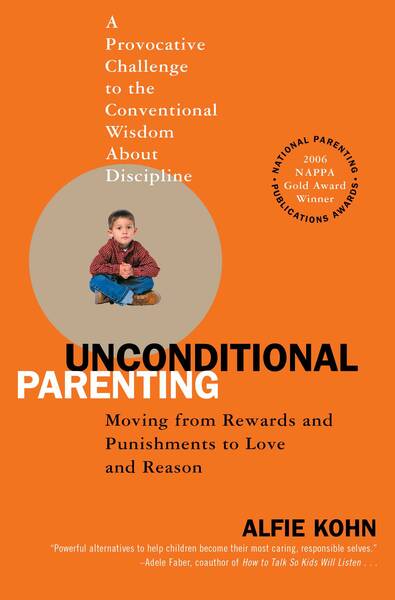This book is a journey into your own childhood and into your everyday behaviors as a parent alike. It was recommended to me via a Youtube mention by Ali Abdaal, who isn’t even a parent, but found the insights to be valuable to every person. He is right, a good part of the book is useful to know when doing basic interaction with people – not only children.
The first two thirds of the book explain all the different ways that traditional (or conservative, if you will) parenting harms children. The approach used to be all about exercising control and making children behave. The better a kid responds to rules and follows them, the more successful a parent used to be in the eyes of others. But is this really the result we are after? Alfie Kohn has done lots of research, cites many scientific studies in the social sciences, and also authored quite a lot of other books surrounding these topics.
While these first two thirds make you realize what a crap job your own parents might have done as well as how much potential there is for your own parenting style, the next third of the book is actionable advice grounded on the results of countless studies. Sidenote, I just recently became aware of the Replication Crisis of the early 2010s, which was a time during which it became public that a huge part of scientific studies, especially those in the social sciences field, failed to replicate and therefore might be void. Although disheartening to learn, the solution can’t be to never trust or learn anything ever again, but rather to try to soak up even more information and meta-information. Which is why this book makes sense, still.
The main point the book is making, is that love and compassion should be at the center of every relationship. Seeing the world through the eyes of your child (perspective taking), never using love or its withdrawal as a weapon or punishment, being mindful of how you behave towards your kids, explaining your actions without only justifying your own behavior, keep the long-term goals in mind, respecting them and talking to them as much as possible. For a long list of the take-aways I wrote down see this Notion file.
The downsides of the book are mostly the unclear situation with the cited studies and the bad look it has when Kohn cites his own earlier works, which he does a lot. And the parts that didn’t go over well with me always involved him sharing his own personal experiences from having two young children himself. He should have just omitted those parts as it makes him look smug but on the other hand naïve. Many of the conflict solutions he found and suggestions he made would fundamentally not work with four kids, like I have. Sure, it’s not his job to write a book just for me, but when writing a book about the topic of good parenting, the author should have the big variety of different family situations in their view and make it applicable in a broader way. I’m not a crazy outlier here, after all.
Still this is one of the books from which I profited immensely and which sparked possibly the longest list of notes I have ever written down. That’s something.

Leave a Comment